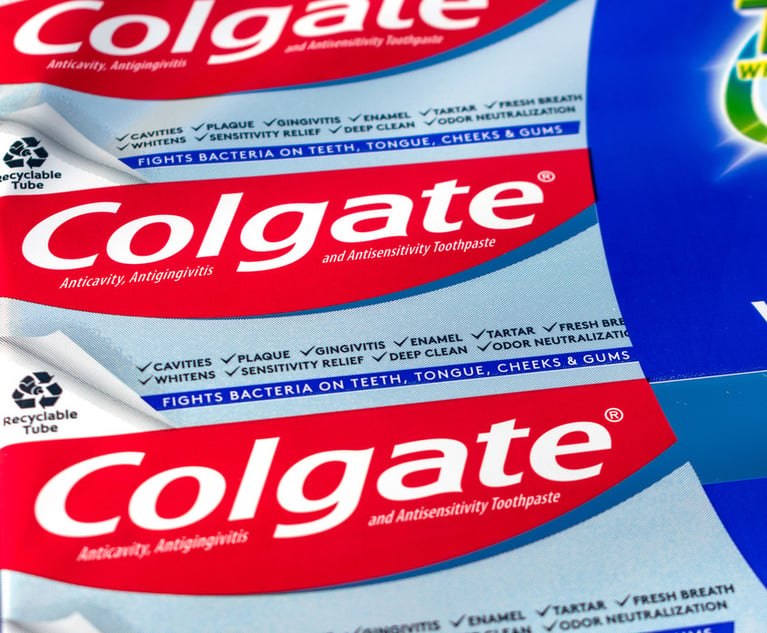4 Changes In-House Tech Teams Could See Under New Tax Bill
Tax attorneys told The Recorder that legal departments should be figuring out exactly how the bill affects their individual company, as there are a variety of changes in regulations.
December 21, 2017 at 06:53 PM
4 minute read

The comprehensive tax bill passed by Congress this week and awaiting President Donald Trump's signature is filled with changes to corporate tax structures, especially for multinational tech companies.
Tax attorneys told The Recorder that legal departments should be figuring out exactly how the bill affects their individual company, as there are a variety of changes in regulations. But there are some changes that most major tech companies can count on.
Here are four developments in-house lawyers at technology companies should start preparing for, as the legislation—if signed by Trump—will be effective at the start of 2018:
1. Money overseas: The new tax plan could incentivize tech companies such as Apple, which has operations in Ireland and other foreign countries, to bring money abroad back to the United States. Companies that kept money overseas to avoid higher U.S. tax rates may bring that money back to take advantage of the now much lower corporate tax rate. The law also will make it more difficult for U.S. companies to avoid paying taxes on money made abroad. “Tech and pharmaceuticals and life science industries, they have large amounts of money offshore that will be subject to tax under the bill,” said Barton Bassett, a partner at Morgan, Lewis & Bockius who works with tech companies. “That money might be brought back and so companies will need to get their hands around what those number look like.”
2. Domestic expansion: If that money does come back, it could spur growth and expansion throughout the United States. There's two paths that could take—an organic route, where companies open up their own locations in new states, or through mergers and acquisitions. Either way, in-house staff should be prepared for a year of growth into new markets by reading up on regulations around the country. “The design of the new tax plan is that it should encourage companies already in the U.S. to keep the money in the U.S. and expand in the U.S.,” said Sam Dibble, a California-based partner at Baker Botts.
3. Compensation changes: C-suite executives could see the way they're compensated change under the new tax plan. Changes to tax law will prohibit companies from deducting more than $1 million in payments to their executive management team, including the CEO and, in another new change, the CFO. “Certainly [in-house counsel will] want to look at executive's compensation plans and understand the changes,” Dibble said. “And make sure that the executives understand the compensation changes.”
4. Relocating: Compensation changes won't just be felt by those at the top. Many Silicon Valley engineers' salaries fall into a range that would see taxes increase. States with higher taxes, like California, lost out in the tax plan. And that could lead companies to move away from the United States' unofficial tech capital—meaning lawyers should be looking into tech and tax regulations in other states. “The cost of living in Silicon Valley and California is already very high, even for an engineer,” Dibble said. “The general thought was we have to be in Silicon Valley because that's where the talent is. But the financial difference between being a highly paid employee in Texas or Washington state, where there's a growing tech presence and smaller overhead, means it may be easier for corporations to relocate people. Employees may want to move.”
The new bill has implications for tech companies of every size, inside and outside of Silicon Valley. While these four potential issues are something to look out for in 2018, tax lawyers say the most important action in-house lawyers can take is sitting down, reading the bill and seeing how their company specifically will be impacted. Then, communicate those changes with other departments and start planning.
“The biggest issue is getting in front of your modeling and determining now how the law is going to impact your business,” Bassett said. “This isn't something you want to wait until next year to figure out.”
This content has been archived. It is available through our partners, LexisNexis® and Bloomberg Law.
To view this content, please continue to their sites.
Not a Lexis Subscriber?
Subscribe Now
Not a Bloomberg Law Subscriber?
Subscribe Now
NOT FOR REPRINT
© 2025 ALM Global, LLC, All Rights Reserved. Request academic re-use from www.copyright.com. All other uses, submit a request to [email protected]. For more information visit Asset & Logo Licensing.
You Might Like
View All



Colgate Faces Class Actions Over ‘Deceptive Marketing’ of Children’s Toothpaste
Trending Stories
- 1Litigators of the Week: A $630M Antitrust Settlement for Automotive Software Vendors—$140M More Than Alleged Overcharges
- 2Litigator of the Week Runners-Up and Shout-Outs
- 3Linklaters Hires Four Partners From Patterson Belknap
- 4Law Firms Expand Scope of Immigration Expertise, Amid Blitz of Trump Orders
- 5Latest Boutique Combination in Florida Continues Am Law 200 Merger Activity
Who Got The Work
J. Brugh Lower of Gibbons has entered an appearance for industrial equipment supplier Devco Corporation in a pending trademark infringement lawsuit. The suit, accusing the defendant of selling knock-off Graco products, was filed Dec. 18 in New Jersey District Court by Rivkin Radler on behalf of Graco Inc. and Graco Minnesota. The case, assigned to U.S. District Judge Zahid N. Quraishi, is 3:24-cv-11294, Graco Inc. et al v. Devco Corporation.
Who Got The Work
Rebecca Maller-Stein and Kent A. Yalowitz of Arnold & Porter Kaye Scholer have entered their appearances for Hanaco Venture Capital and its executives, Lior Prosor and David Frankel, in a pending securities lawsuit. The action, filed on Dec. 24 in New York Southern District Court by Zell, Aron & Co. on behalf of Goldeneye Advisors, accuses the defendants of negligently and fraudulently managing the plaintiff's $1 million investment. The case, assigned to U.S. District Judge Vernon S. Broderick, is 1:24-cv-09918, Goldeneye Advisors, LLC v. Hanaco Venture Capital, Ltd. et al.
Who Got The Work
Attorneys from A&O Shearman has stepped in as defense counsel for Toronto-Dominion Bank and other defendants in a pending securities class action. The suit, filed Dec. 11 in New York Southern District Court by Bleichmar Fonti & Auld, accuses the defendants of concealing the bank's 'pervasive' deficiencies in regards to its compliance with the Bank Secrecy Act and the quality of its anti-money laundering controls. The case, assigned to U.S. District Judge Arun Subramanian, is 1:24-cv-09445, Gonzalez v. The Toronto-Dominion Bank et al.
Who Got The Work
Crown Castle International, a Pennsylvania company providing shared communications infrastructure, has turned to Luke D. Wolf of Gordon Rees Scully Mansukhani to fend off a pending breach-of-contract lawsuit. The court action, filed Nov. 25 in Michigan Eastern District Court by Hooper Hathaway PC on behalf of The Town Residences LLC, accuses Crown Castle of failing to transfer approximately $30,000 in utility payments from T-Mobile in breach of a roof-top lease and assignment agreement. The case, assigned to U.S. District Judge Susan K. Declercq, is 2:24-cv-13131, The Town Residences LLC v. T-Mobile US, Inc. et al.
Who Got The Work
Wilfred P. Coronato and Daniel M. Schwartz of McCarter & English have stepped in as defense counsel to Electrolux Home Products Inc. in a pending product liability lawsuit. The court action, filed Nov. 26 in New York Eastern District Court by Poulos Lopiccolo PC and Nagel Rice LLP on behalf of David Stern, alleges that the defendant's refrigerators’ drawers and shelving repeatedly break and fall apart within months after purchase. The case, assigned to U.S. District Judge Joan M. Azrack, is 2:24-cv-08204, Stern v. Electrolux Home Products, Inc.
Featured Firms
Law Offices of Gary Martin Hays & Associates, P.C.
(470) 294-1674
Law Offices of Mark E. Salomone
(857) 444-6468
Smith & Hassler
(713) 739-1250






